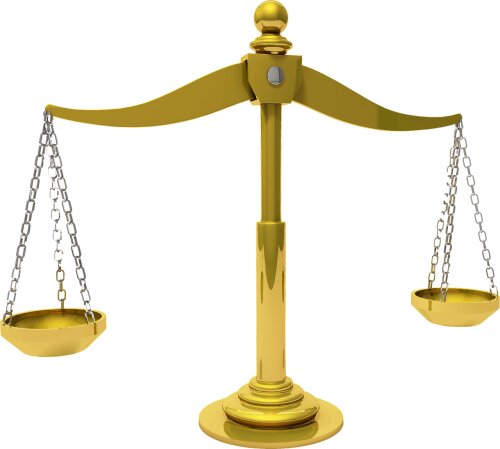Best Military Law Lawyers in Mthatha
Share your needs with us, get contacted by law firms.
Free. Takes 2 min.
List of the best lawyers in Mthatha, South Africa
About Military Law in Mthatha, South Africa
Military Law in Mthatha, South Africa, encompasses the legal statutes, regulations, and guidelines that govern the conduct of military personnel. As with other locations in South Africa, military law in Mthatha is influenced by national military legislation but is also shaped by specific local judicial practices and cultural considerations. This area of law focuses on issues related to military discipline, conduct in duty, and the legal rights of service members. Legal practitioners in this field address a variety of cases, from court martial proceedings to disputes about military benefits and rights.
Why You May Need a Lawyer
There are several common situations in which individuals might require assistance from a lawyer specializing in military law. These include:
- Facing court martial proceedings or other disciplinary actions.
- Seeking clarity on military rights and obligations.
- Dealing with disputes related to military pensions or benefits.
- Navigating the complexities of military service contracts or discharge processes.
- Addressing allegations of misconduct such as AWOL (Absent Without Leave).
Local Laws Overview
The key aspects of local laws in Mthatha relevant to military law include the application of national military statutes like the Military Discipline Supplementary Measures Act and the Defence Act. Local legal norms may also influence how cases are adjudicated. Special attention is given to ensuring that disciplinary procedures comply with both military regulations and the broader principles of justice and fairness observed in South Africa.
Frequently Asked Questions
What is the role of military law in South Africa?
Military law governs the conduct and discipline of armed forces personnel, maintaining order and ensuring compliance with national laws and military codes. It differs from civilian law by focusing specifically on matters that pertain to the unique environment of military service.
How does one start a military legal proceeding?
Proceedings are typically initiated through consultation with a military legal adviser or a lawyer experienced in military law. An official complaint or request for review may be filed with the appropriate military authority.
Can military personnel access civilian legal systems?
Yes, military personnel can address certain legal issues through the civilian legal system, especially those involving civil rights or when proceedings involve non-military disputes.
How are military law violations penalized?
Penalties for violations of military law can range from reprimands and fines to imprisonment or dismissal from service, depending on the severity of the offense.
What rights do military personnel have during legal proceedings?
Military personnel have the right to legal representation, the right to be informed of the charges against them, and the right to a fair trial, mirroring many rights found in civilian legal processes.
Are military legal proceedings public?
Generally, military legal proceedings are not open to the public to maintain operational security and protect sensitive information. However, certain details and outcomes may be disclosed to ensure transparency and accountability.
Can decisions made by military courts be appealed?
Yes, decisions can be appealed to higher military courts, and in some situations, to civilian courts for further review and judgment.
How is legal aid accessed for military cases?
Legal aid may be provided through military legal services or private legal professionals who offer their services to military personnel, often at reduced rates depending on the case's circumstances.
What should one do if called to a disciplinary hearing?
It's crucial to seek immediate legal counsel to understand the charges and prepare a defense. Complying with the notice and participating in the proceedings is also necessary.
Are there protections against discrimination in the military?
Yes, South Africa's constitution and military laws prohibit discrimination in service based on race, gender, or other protected classes.
Additional Resources
For those seeking more information or assistance, the following resources may be beneficial:
- The South African National Defence Force (SANDF) legal services.
- Justice Centres located across South Africa.
- Legal Aid South Africa, which provides legal assistance to those who qualify.
- Veterans associations that offer advocacy and legal advice.
Next Steps
If you require legal assistance in military law, it is advisable to consult with a qualified lawyer who specializes in this area. You can begin by contacting the military legal aid services or seeking a referral from a reputable law firm with expertise in military issues. Understanding your legal rights and preparing for any legal proceedings is crucial to achieving a favorable outcome.
Lawzana helps you find the best lawyers and law firms in Mthatha through a curated and pre-screened list of qualified legal professionals. Our platform offers rankings and detailed profiles of attorneys and law firms, allowing you to compare based on practice areas, including Military Law, experience, and client feedback.
Each profile includes a description of the firm's areas of practice, client reviews, team members and partners, year of establishment, spoken languages, office locations, contact information, social media presence, and any published articles or resources. Most firms on our platform speak English and are experienced in both local and international legal matters.
Get a quote from top-rated law firms in Mthatha, South Africa — quickly, securely, and without unnecessary hassle.
Disclaimer:
The information provided on this page is for general informational purposes only and does not constitute legal advice. While we strive to ensure the accuracy and relevance of the content, legal information may change over time, and interpretations of the law can vary. You should always consult with a qualified legal professional for advice specific to your situation.
We disclaim all liability for actions taken or not taken based on the content of this page. If you believe any information is incorrect or outdated, please contact us, and we will review and update it where appropriate.








